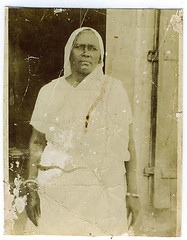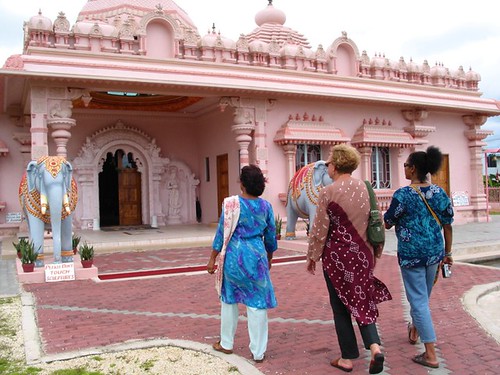
On May 30 Trinidad and Tobago celebrated Indian Arrival Day, a holiday commemorating the first wave of migration to the islands from India, in 1845. The immigrants came as indentured labourers, bound for the sugar estates, replacements, as Dr. Roi Kwabena reminds us, for the newly-emancipated African slaves. The indentureship programme continued until 1917, with tens of thousands of Indians eventually making the journey.
Indian Arrival Day is celebrated almost exclusively by the descendants of these immigrants, who now make up some 40% of the country's population, with singing, dancing, drumming, even a re-enactment of the landing of the first ship to make the voyage from India, the Fath-al-Razack. Taran Rampersad notes that while the majority of Indians to come to Trinidad were Hindu, “the ship Fath Al Razack – commonly misspelled/pronounced to Fatel Razack – was owned by an Indian Muslim; Ibrahim Bin Yussef. And the name of the ship itself means, ‘Victory of Allah the Provider’.” Taran, who is partly of Indian descent, goes on to look at the Indian presence in Trinidad, and his own place (or lack thereof) in it, with a concluding wish to everyone for a “Happy Indian Arrival Day, whatever it means to you.”
Nicholas Laughlin, meanwhile, who has no Indian ancestry as far as he knows, considers the broader issue of “the long, often arduous, sometimes improbable journeys that all our ancestors endured to end up in this bewildering little corner of the world that is the Caribbean”, and gives a short run-down of how his ancestors came to call Trinidad home. Ultimately, however, he finds that he's “far less interested in the moment of arrival itself and far more interested in the new journey that ‘arrival’ begins–in the process by which wanderers, exiles, prisoners, and explorers make of the disjecta membra of many old worlds something new”.
Finally, over at the Caribbean Free Radio blog, Global Voices Caribbean Editor Georgia Popplewell takes a look back at her own ancestry and recounts how her maternal grandfather, Morton Dean Gangar, of Indian descent, married her African-European mixed grandmother, Petronella Quarless, which helps to explain how Georgia, like so many of her countrymen and women, came to be a truly mixed race, Trinidadian callaloo.








3 comments
Really great post!
trinidad has always fascinated me and i would love to visit this beatuiful country